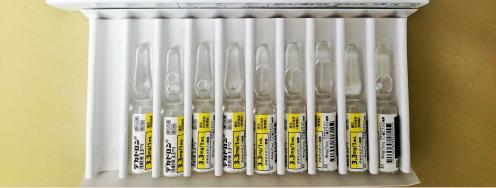The X-Men Didn't Save Us
It wasn't the mutants. It was humans that caused the Cuban Missile Crisis. Only luck saved us from nuclear war. But other than that, the new film, X-Men: First Class, gets a lot right about the historic crisis that is central to its plot.
So far, the film has grossed $235 million in 12 days, making it one of the year's blockbuster movies. Over 20 million people have seen the film already. Tens of millions more will view it over the next few weeks. Many of them will pay more attention to this piece of history than they probably have in their lives. It's worth a quick look at what Hollywood is telling us.
Like most comic book movies, this one ends with the superheroes saving the world from imminent destruction. To add realism, X-Men takes place in a year when we actually came close.
In case you forgot your history, the Cuban Missile Crisis was thirteen tense days in October 1962 when the United States and the Soviet Union came to the brink of thermonuclear war. The US discovered that the Soviet Union had secretly placed ballistic missiles in Cuba. President Kennedy ordered a naval quarantine around Cuba and demanded Soviet Premier Nikita Khrushchev remove the missiles.
The standoff is often described, to paraphrase then-Secretary of State Dean Rusk, as the US and Soviet Union coming eyeball-to-eyeball, with the Soviets blinking first - recalling its ships and removing the missiles from Cuba.
As X-Men history would have it, a malevolent mutant - played by Kevin Bacon - secretly engineered the crisis in order to force a war, after which mutants would take over the post-apocalypse world. In the end (spoiler alert), the X-Men swoop into the tense US-Soviet standoff at sea. They stop the Soviet missile ship from crossing the blockade line, keep the US and Soviet navies from battle and prevent World War III.
Of Mutants and Men
What makes the movie so interesting - aside from the charismatic mutants, smart jokes and multiple explosions - is the historical setting. The film's creators touch on several underappreciated points about the actual crisis.
First, in October 1962, we did come unbelievably close to thermonuclear war. The chance of the crisis escalating to nuclear war, as President Kennedy said, was "between one out of three and even."
In 1962, the US and Soviet Union had, respectively, 25,540 and 3,322 nuclear bombs - enough to destroy the world many times over. Before the crisis really started, some 100 Soviet warheads were already in Cuba (something the US would not know until decades later). With one wrong step, the two countries would have tumbled over the nuclear brink.
Second, as the film shows, the crisis actually began in Turkey, not Cuba. In X-Men, Sebastian Shaw (the mutant played by Kevin Bacon) coerces a US general into supporting the deployment of US missiles in Turkey--and then convinces the Soviets they must counter with missiles in Cuba.
Historically, this sequencing is right (minus the mutants). In the early 1960s, the US deployed 15 Jupiter missiles in Turkey, a NATO ally bordering the Soviet Union. Only then did the Soviet Union respond by secretly deploying similar-ranged nuclear missiles in Cuba. Many histories forget this fact. Similarly, they forget the crisis ended with mutual compromise: Russia withdrew missiles from Cuba and the US quietly withdrew its missiles from Turkey.
Third, there really was a submarine escorting the missile-carrying cargo ships to Cuba. But it was a Soviet sub, not a mutant one. On October 27, US destroyers dropped depth charges on the Soviet submarine, B-59--unaware that the sub carried a nuclear-tipped torpedo.
Cut off from communications with Moscow and with charges exploding overhead, the exhausted Soviet captain ordered the torpedo readied for launch. "We're going to blast them now!" he said, "We will die, but we will sink them all." But firing the torpedo required the 3 top officers to all agree. They voted. It went 2-1 with Second Captain Vasili Arkhipov voting against. The order was never given, the sub surfaced and nuclear war was averted.
Then-Defense Secretary Robert McNamara said years later that we escaped annihilation through "sheer luck."
Will We Always Be Lucky?
Today, the US has 8,500 nuclear weapons. Russia has an estimated 11,000. Each side still keeps over 1,000 thermonuclear warheads on hair trigger alert, ready to launch on a moment's notice.
Nuclear war by accident, miscalculation or madness remains a very real risk. And, if it comes, we will not have Magneto's missile shield to protect us.
This article was co-authored with Benjamin Loehrke, Research Associate at Ploughshares Fund.



